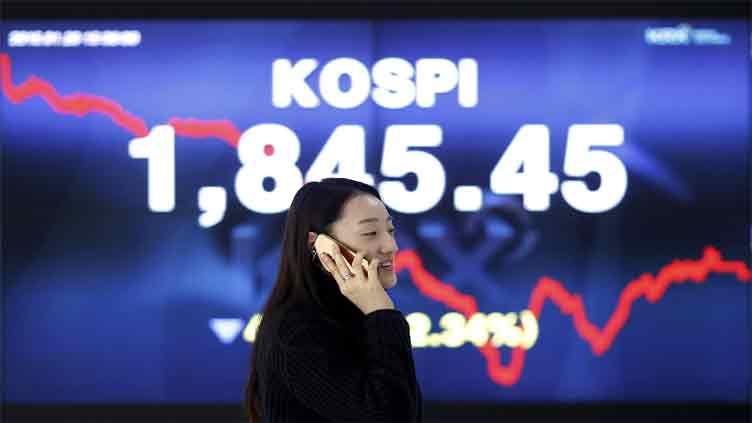South Korea to impose fines on two global banks for short-selling violations

Business
It is widening a probe to weed out illegal short-sellers from the local stock market
SEOUL (Reuters/Web Desk) – South Korea's financial regulator on Sunday said it plans to impose penalties on two unnamed global investment banks it is investigating.
The Financial Services Commission said it found two global investment banks were engaged in the practice of naked short-selling transactions, which involves selling shares without borrowing them first.
The FSC did not identify their names.
South Korea has been widening a probe into global investment banks to weed out illegal short-sellers from the local stock market after it imposed a full ban on short-selling in November through the end of June 2024.
In December, it said it would fine two unnamed global investment banks and one local brokerage 26.5 billion won ($20.2 million) in total for naked short-selling.
WHAT IS SHORT-SELLING?
Short-selling is the selling of a stock that the seller doesn't own. More specifically, a short sale is the sale of a security that isn't owned by the seller, but that is promised to be delivered.
In other words, short selling refers to the sale of a security or financial instrument that the seller has borrowed. The short seller believes that the borrowed security's price will decline, enabling it to be bought back at a lower price for a profit. The difference between the price at which the security was sold and the price at which it was purchased represents the short seller’s profit—or loss, as the case may be.
But how does it work?
Well! When a person short sells a stock, his broker will lend it to him. The stock will come from the brokerage's own inventory, from another one of the firm's customers, or from another brokerage firm.
The shares are sold and the proceeds are credited to your account. Sooner or later he must close the short by buying back the same number of shares and returning them to your broker.
If the price drops, he can buy back the stock at the lower price and make a profit on the difference. If the price of the stock rises, he has to buy it back at the higher price, and he loses money.


